Sen. John Curtis questions EPA nominee on his approach to job, emissions
By: Amy Joi O’Donoghue
The Deseret News
January 16, 2025
Utah’s newest GOP senator John Curtis praised President-elect Donald Trump’s nominee to serve as administrator of the U.S. Environmental Protection Agency, asserting Lee Zeldin has a reputation for working across the aisle to get important environmental legislation done.
Zeldin, a former GOP member from the House, was tapped by Trump to lead the agency charged with enforcing the Clean Air Act, the Clean Water Act and the Safe Drinking Water Act.
Many GOP-led states, including Utah, have railed against the EPA and filed litigation over rules they say will stymie economic growth and thwart a stable energy landscape.
But in a Thursday hearing before the Senate Committee on Environment and Public Works, Curtis said there is room for optimism with Trump’s pick.
“In Utah, we’re pretty proud of our beauty, of our natural resources. It really would be hard to find a more spectacular place in the United States, everything from five national parks, arches and monuments and ski resorts. And I think because of that, Utahns have this inherent desire to take care of it, to leave it better than we found it to, to make sure that we’re not polluting,” Curtis said.
He continued, “I can find total agreement in Utah that less pollution is better than more pollution. Less emissions is better than more emissions, and that we want to leave the earth better than we found it. And you and I had the benefit of working together in the House, and I just want to use this opportunity to thank you for your support of my work in talking about climate, talking about some of these issues that are being addressed this morning.”
Curtis was joined by other colleagues who complained the EPA has unfairly targeted them for pollution that is from out of state — or country — for which there is no control.
The new Utah senator pointed to the geography “bowl” of the Wasatch Front, while Sen. Mark Kelly, D-Arizona, complained of the northerly drift of pollution that comes from Mexico into his state.
The EPA, Curtis said, has granted little acknowledgement to these outside factors when it comes to state pollution plans aimed at combatting emissions.
“When you were in my office, we talked specifically about the Uinta basin where 80% of the methane that is registered in the basin doesn’t come from traditional fossil fuel sources. It comes from ground sources. It comes from air that comes into the region, and yet they’re judged and measured on that whole 100% not the 20% that they emit.”
With its mission to protect human health and the environment, the committee chair, Sen. Shelley Moore Capito, R-West Virginia, said the EPA could spend its money more wisely.
“When the EPA focuses on what it does best, it doesn’t just benefit the environment, it benefits our economic growth. For example, the agency should prioritize cleaning up brownfields and Superfund sites to facilitate new economic development of those locations, many of those of which are located in rural and distressed areas,” she said.
While a House representative, Zeldin worked on legislation to reign in PFAS, or forever chemicals linked to cancer and other diseases and under questioning said climate change is real.
Some Democratic members on the committee wondered if donations from the oil and gas industry would shape how Zeldin would run the agency.
“There is no dollar, large or small, that can influence the decisions that I make, who has access to me and how I am ruling in my obligations under the law,” he responded.
